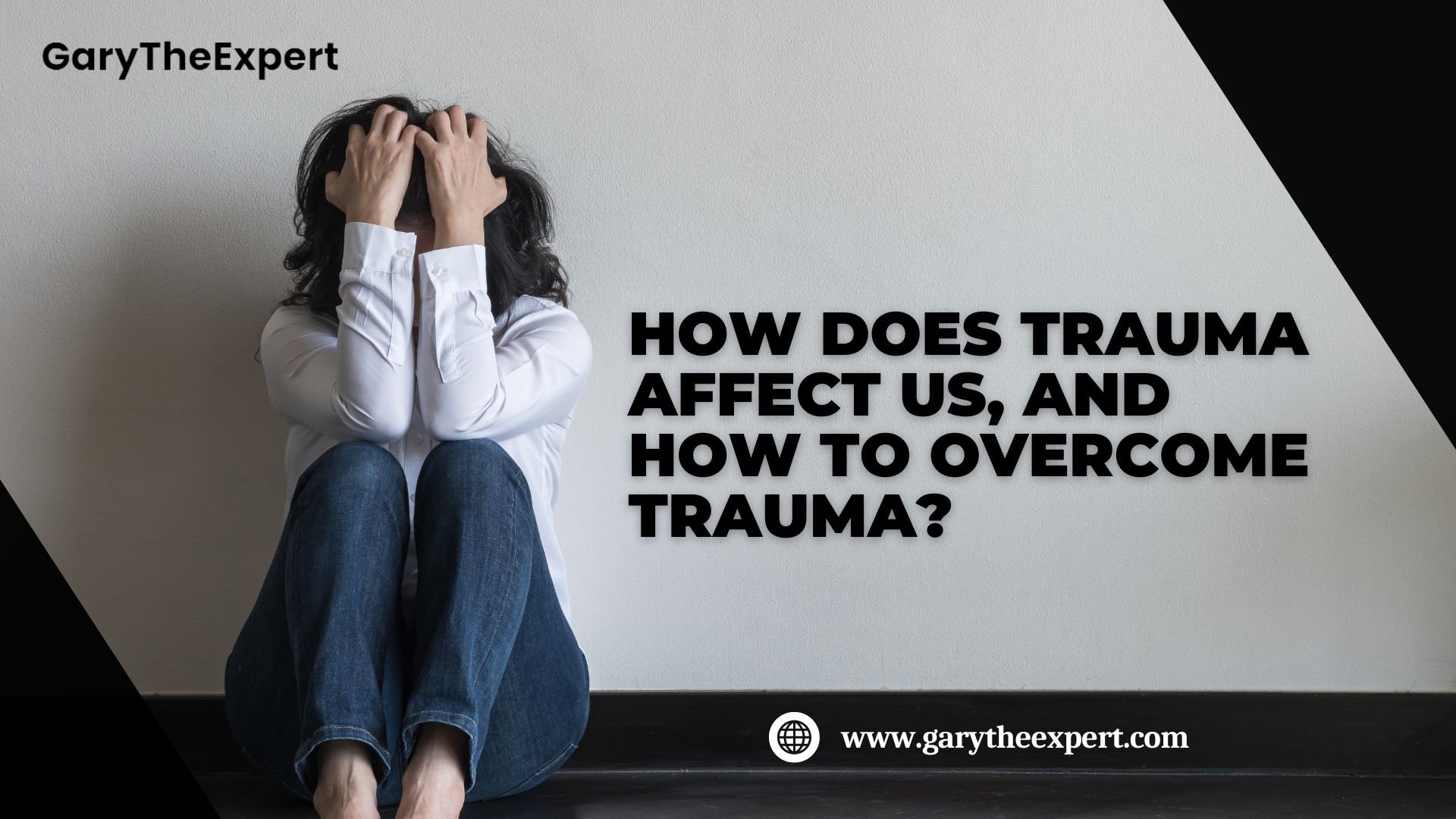How does Trauma affect us, and How to Overcome Trauma?
16th September 2024
GaryTheExpert
I would like to start with an analogy, think of your trauma something like a pressure cooker, a boiling pot. If we do not have emotional realising, then we can get to a stage where the pressure becomes so much we ultimately explode. If we consciously realise we can open the pot lid slowly and reduce the pressure immensely.
Another parallel for suppressed emotions aka trauma, is when we have a clogged pipe. Overtime the pipe becomes clogged, sometimes we need a professional, a handyman or plumber to use a tool to unclogged the pipe, and once we get some help, we can remove vast amount of debris, and therefore our pipes works smooth as ever.
Understanding Signs
Firstly knowledge is crucial when understanding our trauma, if we are not familiar with possible pressure points, or certain clogged pipes we won’t try change or fix such a thing.
Here are 7 ways trauma could be affecting your life.
1. Feelings of depression constantly, and possible urges of wanting to unalive oneself.
2. Sudden bursts of anger or sadness.
3. Constantly revisiting past moments that bring negative emotion, and may also shadow future moments too.
4. Relationship challenges more conflicts arising.
5. Sleep problems, sleeping too much, or too little.
6. Sometimes unexplained pains and aches in the body
7. Emotional numbness to people, feeling disconnected.
So step one is done, realising we are being held back.
Now human nature is to become accustom to our emotional state, so here we are right now in this feeling and this feeling is ‘normal’ for us. But that normal likely is different to someone else. They could feel consistently worse, or consistently better.
If you say you don’t need trauma help, you might be correct, but we don’t know!
One question that blows my mind is, When is enough healing, enough?
It throws me off each time. It begs other questions, of when is enough, enough, or when is enough growth, enough
If you want to deal with trauma here is 5 ways to overcome your trauma.
1. Get professional help, of course is number 1.
2. Building coping skills, emotional regulation strategies, and meditation to sit with these uncomfortable feelings.
3. A change of perception, to how this benefitted you.
4. Growing a support network.
5. Stop using substances like drugs, alcohol for a period of time.
Look, trauma is complicated, and when is enough healing, enough? Well, it’s enough when you can say it is, with strength. When you no longer ruminate negatively about your future or past. When you break negative cycles or habits. When you're aware that we are not perfect, and there will always be an element of pain—but it no longer defines you. Healing is when your suffering stops being overbearing. This is the moment you feel strong within yourself, proud of who you are becoming.
It’s also essential to recognize that recovery can intertwine with depression and anxiety. If you’ve experienced depression addiction recovery, you know that healing isn’t linear. It requires patience, self-compassion, and continuous effort. However, true recovery is when you start seeing your struggles not as barriers but as stepping stones toward personal growth and emotional freedom.
4o
If you want to get there book in a session with me here.
I will spend time with you making you get to the place of you have healed enough. The depths of the mind knows no limit.
We don’t need to struggle forever. Let’s work through this together.
Speak soon,
Gary
